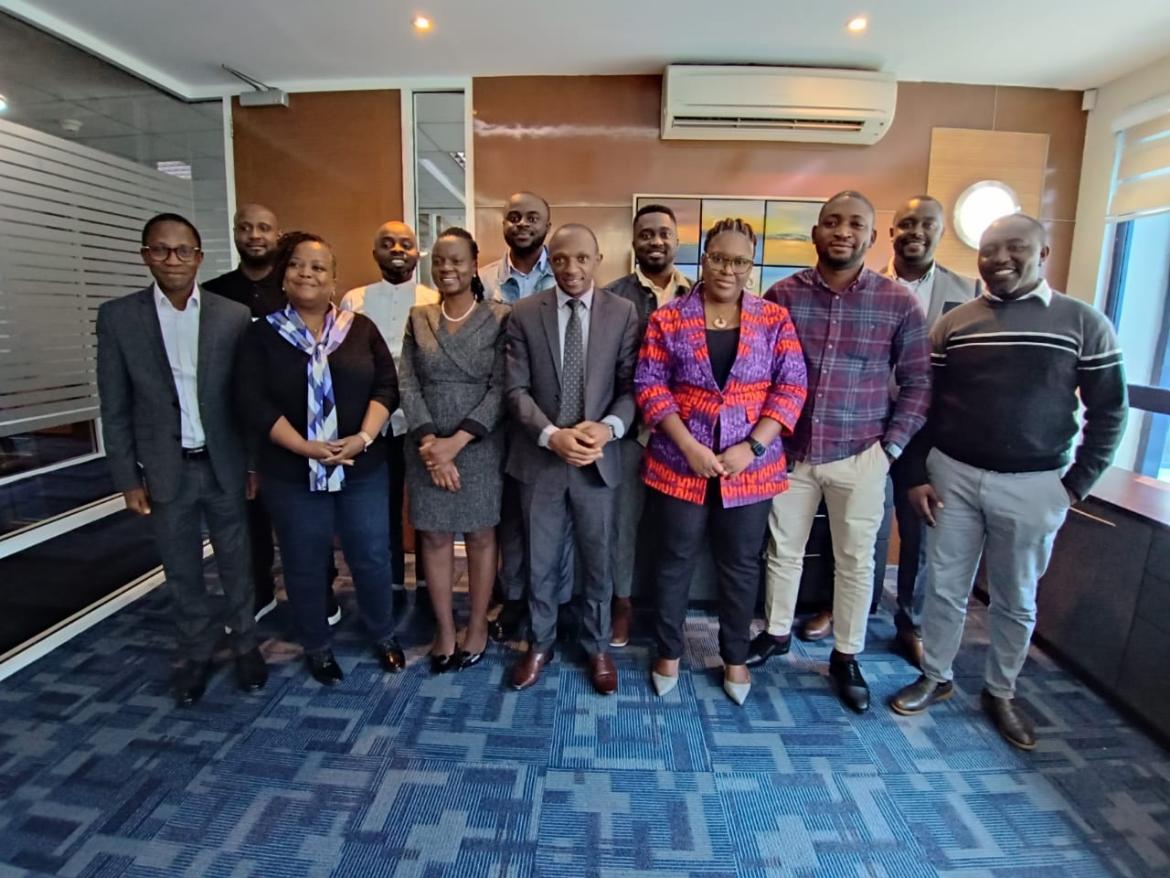Looking East: Lessons for Nigerian Insurers from Kenya’s Digital Insurance Ecosystem

During December 5 – 8, 2022, a delegation of seven Nigerian industry experts were on a learning mission in Kenya. The study tour was organized as part of the GIIF South-South knowledge exchange effort for incumbent insurers transitioning to digital insurers. The delegates work towards transforming Nigeria’s insurance industry through the agile design, promotion and adoption of insurtech to increase the protection cover for millions of Nigerians. This was the second phase of the Neo Insurer Training Initiative (NITI).
The study tour took the delegates to Safaricom, APA Insurance, ACRE Africa, Insurance Regulatory Agency (IRA), and Kenbright Technologies, and culminated with a session for gleaning real-industry experience in digital transitions from experts drawn from across Kenya’s insurance landscape.
At Safaricom, team were taken through an M-PESA deep-dive. M-PESA is Africa's most successful mobile money service and the region’s largest fintech platform. The delegates learnt how M-PESA focuses on human-centered product design and customer-focused user experiences to make payments. A recent development is the evolution of M-PESA to allow end-to-end purchase of insurance products.
APA, through its Digital Factory, is fast becoming a significant inclusive insurance market player across East Africa. Through its high-tech and high-touch approach, APA is reaching new customers at the bottom of the pyramid with innovative microinsurance products. Its digital transformation uses predictive analytics in product design and optimized claims processes. Two important products include: the Upendo (love in Swahili) and Bima Bamba (loosely translated as small-installment insurance payments in Swahili). The Upendo policy provides a bundled funeral expense and life insurance open-ended cover that offers 50% premium cash back annually in case of no claim as long as premiums are fully paid. Bima Bamba reduces the initial outlay for comprehensive motor insurance through 12 monthly payments.
During the visit to ACRE Africa, the delegates sampled innovations in use of smart collars and microchips to track insured livestock which have replaced ear tags that were previously abused in fraudulent claims. Through their Internet of Things (IoT)-backed claims process, ACRE Africa are processing claims in just three days, down from 14-21 days. Combining insurance literacy with regular extension messages on the value of quality inputs, how to raise farm productivity and how to access agricultural loans, ACRE Africa aims at building trust equity among farmers in Kenya. ACRE Africa’s risk modelling and agricultural insurance product design are backed by data generated from both satellites and weather stations. Through its parametric insurance using rainfall and soil moisture indices, farmers’ crops are insured against drought and excessive rainfall.
Kenya’s regulator, IRA, values insurance innovation through progressive, timely and transparent product review and approval processes. IRA is also supporting a “Test and Learn” environment in Kenya which it piloted through its sandbox – Bima Box – launched in 2019. Since then, it has collaborated with FSD Africa in the Bima Lab; leading to 500,000 people being insured for the first time. The delegates witnessed the fully digitalized IRA approval process which is ISO certified. The typical IRA approval process for straight forward product applications is three days. IRA has significant convening power among industry innovators, legislators and other ecosystem actors to drive industry innovation.
The engagements with Kenbright Technologies showed how investments today in creating a digital insurance engine will create the insurance omni-channel of the future.
According to Ezekiel Macharia, Managing Director, Kenbright Technologies: “Virtual platforms will dramatically decrease the costs of customer acquisition and increase customer lifetime value in insurance.”
Three takeaways emerged and resonated with all stakeholders during the workshop and entire study tour:
(i) The untapped insurance market is immense and will be exploited through collaborative competition to open up a larger captive market. This will reduce excessive undercutting which currently characterizes the microinsurance space.
(ii) Greater access to customer data through a shared open insurance data platform facilitated by insurance regulators will lower the customer discovery and acquisition costs thus leading to more affordable microinsurance products.
(iii) Scaling the Neo Insurer Training Initiative (NITI) across Africa will support innovation and insurtech development across Africa.
Following the success of these two first exploratory phases of the NITI, the project teams now aim at exploring modalities of scaling it across Africa.
